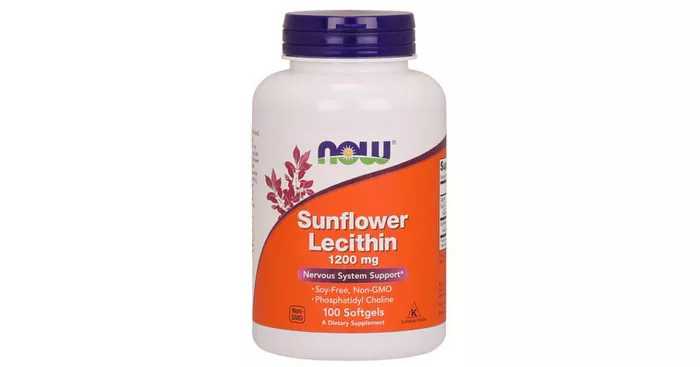Breastfeeding is a vital phase in a mother’s journey, providing essential nutrients and fostering a strong bond between mother and child. However, challenges may arise, leading mothers to seek solutions to common breastfeeding issues such as plugged ducts and mastitis. Sunflower lecithin has gained popularity as a natural remedy to alleviate these concerns. While it is generally regarded as safe, understanding potential side effects is crucial, particularly for breastfeeding mothers. In this comprehensive guide, we delve into the benefits, risks, and considerations surrounding sunflower lecithin use during breastfeeding.
What is Sunflower Lecithin?
Lecithin, a fat-like substance found in plants and animals, serves various functions in the body, including cell membrane structure and nerve function. Sunflower lecithin, derived from sunflower seeds, is a popular alternative to soy-based lecithin due to its hypoallergenic properties. It contains phospholipids, primarily phosphatidylcholine, which emulsify fats and aid in the absorption of nutrients.
Benefits of Sunflower Lecithin During Breastfeeding
Breastfeeding mothers commonly encounter issues such as plugged ducts and mastitis, which can cause discomfort and interfere with milk production. Sunflower lecithin is believed to offer several benefits in managing these challenges:
1. Prevention and Treatment of Plugged Ducts: Plugged ducts occur when milk flow is obstructed, leading to localized pain and inflammation. Sunflower lecithin may help by reducing the viscosity of breast milk, making it less likely to clog ducts and promoting smoother milk flow.
2. Relief from Mastitis Symptoms: Mastitis, an infection of the breast tissue, often presents with symptoms like breast tenderness, redness, and fever. Sunflower lecithin’s purported anti-inflammatory properties may aid in reducing swelling and discomfort associated with mastitis.
3. Improvement of Milk Lactation: Some breastfeeding mothers report an increase in milk production when supplementing with sunflower lecithin. While research on this aspect is limited, anecdotal evidence suggests a potential positive effect on lactation.
Understanding Sunflower Lecithin Side Effects
While sunflower lecithin is generally considered safe for most individuals, including breastfeeding mothers, it’s essential to be aware of potential side effects:
1. Gastrointestinal Distress: Some individuals may experience gastrointestinal issues such as diarrhea, nausea, or abdominal pain when consuming sunflower lecithin. These symptoms are usually mild and transient but may warrant discontinuation if persistent.
2. Allergic Reactions: Although sunflower lecithin is hypoallergenic compared to soy-based lecithin, allergic reactions are still possible, albeit rare. Symptoms may include itching, hives, swelling, or difficulty breathing. Breastfeeding mothers with known allergies to sunflower seeds should exercise caution and consult a healthcare professional before use.
3. Impact on Infant: While sunflower lecithin is generally considered safe for breastfeeding mothers, limited information is available regarding its potential effects on infants. While no significant adverse effects have been reported, it’s advisable to monitor the infant for any unusual reactions or changes in feeding behavior.
4. Drug Interactions: Sunflower lecithin may interact with certain medications, particularly those metabolized by the liver. Breastfeeding mothers taking medications should consult their healthcare provider before incorporating sunflower lecithin into their regimen to avoid potential interactions.
Guidelines for Safe Use
To minimize the risk of adverse effects, consider the following guidelines when using sunflower lecithin during breastfeeding:
1. Consult a Healthcare Provider: Before starting any new supplement regimen, especially during breastfeeding, it’s crucial to consult a healthcare provider. They can provide personalized guidance based on your medical history and individual needs.
2. Start with a Low Dose: Begin with a low dose of sunflower lecithin and gradually increase as needed. This approach allows you to assess tolerance and minimize the risk of gastrointestinal upset.
3. Choose Quality Products: Select reputable brands known for their quality and purity. Look for sunflower lecithin supplements that are free from additives, preservatives, and allergens.
4. Monitor for Side Effects: Pay attention to how your body responds to sunflower lecithin supplementation. If you experience any adverse effects, discontinue use and consult your healthcare provider.
5. Stay Hydrated: Drinking an adequate amount of water is essential, especially when using sunflower lecithin to prevent plugged ducts. Proper hydration helps maintain optimal milk flow and supports overall breastfeeding health.
Conclusion
Sunflower lecithin offers potential benefits for breastfeeding mothers, particularly in managing common breastfeeding challenges such as plugged ducts and mastitis. While generally safe, it’s essential to be mindful of potential side effects and adhere to guidelines for safe use. Consulting a healthcare provider before supplementation is crucial, especially for individuals with pre-existing medical conditions or allergies. By understanding the risks and benefits associated with sunflower lecithin use during breastfeeding, mothers can make informed decisions to support their breastfeeding journey effectively.


